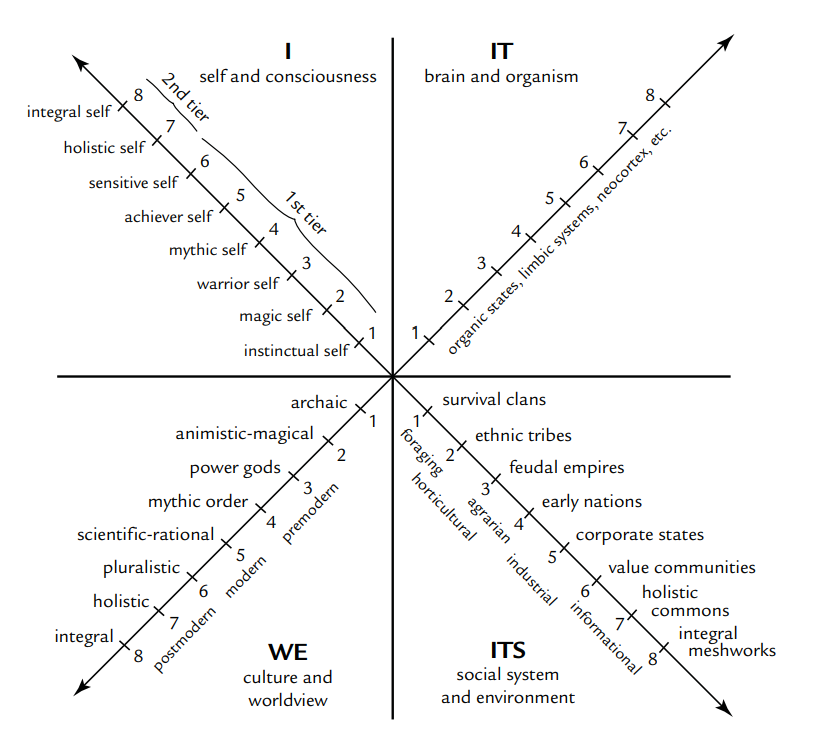-
The integral framework allows us to coordinate these multiple ways of knowing and place them into orchestrated action in the world.
-
Integral Theory posits that all of human knowledge and experience can be placed somewhere within four quadrants
| Interior | Exterior | |
|---|---|---|
| Individual | Subjective / Intentional (I) | Objective / Behavioral (IT) |
| Collective | Intersubjective / Cultural (WE) | Interobjective / Social (ITS) |
-
The four quadrants represent both perspectives and dimensions of reality
- Intentional - individual psychological development.
- Behavioral - describes the physical correlates of consciousness
- Cultural - describes collective mutations in consciousness (i.e., culture and worldview)
- Social - describes the plurality of people as seen from outside (i.e., Sociology)
-
One cannot understand one of these realities through the lens of any of the others. At the same time, one cannot understand all of reality through just one quadrant
-
Within the interior, there are levels of depth, and within the exterior, levels of complexity. This recognizes that there are many potential layers of development within any domain of reality

- Reality is composed of lines of development which are the various trails one can take to explore human perspectives. These lines of development demonstrate sequentially increasing levels of complexity and depth
- Reality can be in various states which are temporary expressions of a particular aspect of reality.
- Patterns are encapsulated using various types which are consistent styles that arise in various domains and occur irrespective of developmental level. Types are very stable and resilient patterns
- Each quadrant can be studied through two methodological families — from either the inside or the outside. These zones comprise the Integral Methodological Pluralism.
| Zone | Interior/Exterior | Individual / Collective | Internal / External |
|---|---|---|---|
| Phenomenology | Interior | Individual | Internal |
| Structuralism | Interior | Individual | External |
| Autopoiesis | Exterior | Individual | Internal |
| Empiricism | Exterior | Individual | External |
| Hermeneutics | Interior | Collective | Internal |
| Enthomethodology | Interior | Collective | External |
| Social Autopoiesis | Exterior | Collective | Internal |
| Systems Theory | Exterior | Collective | External |